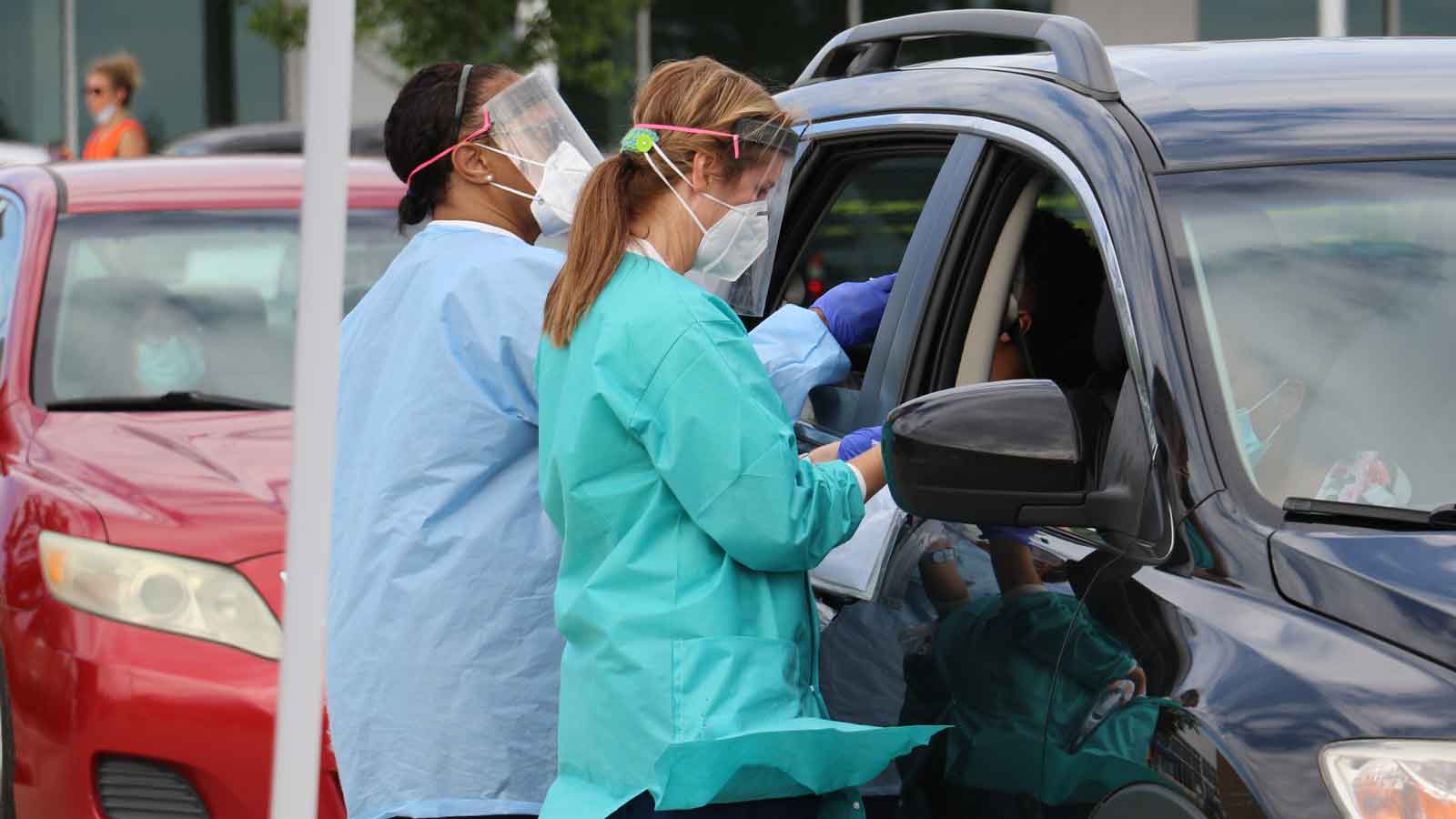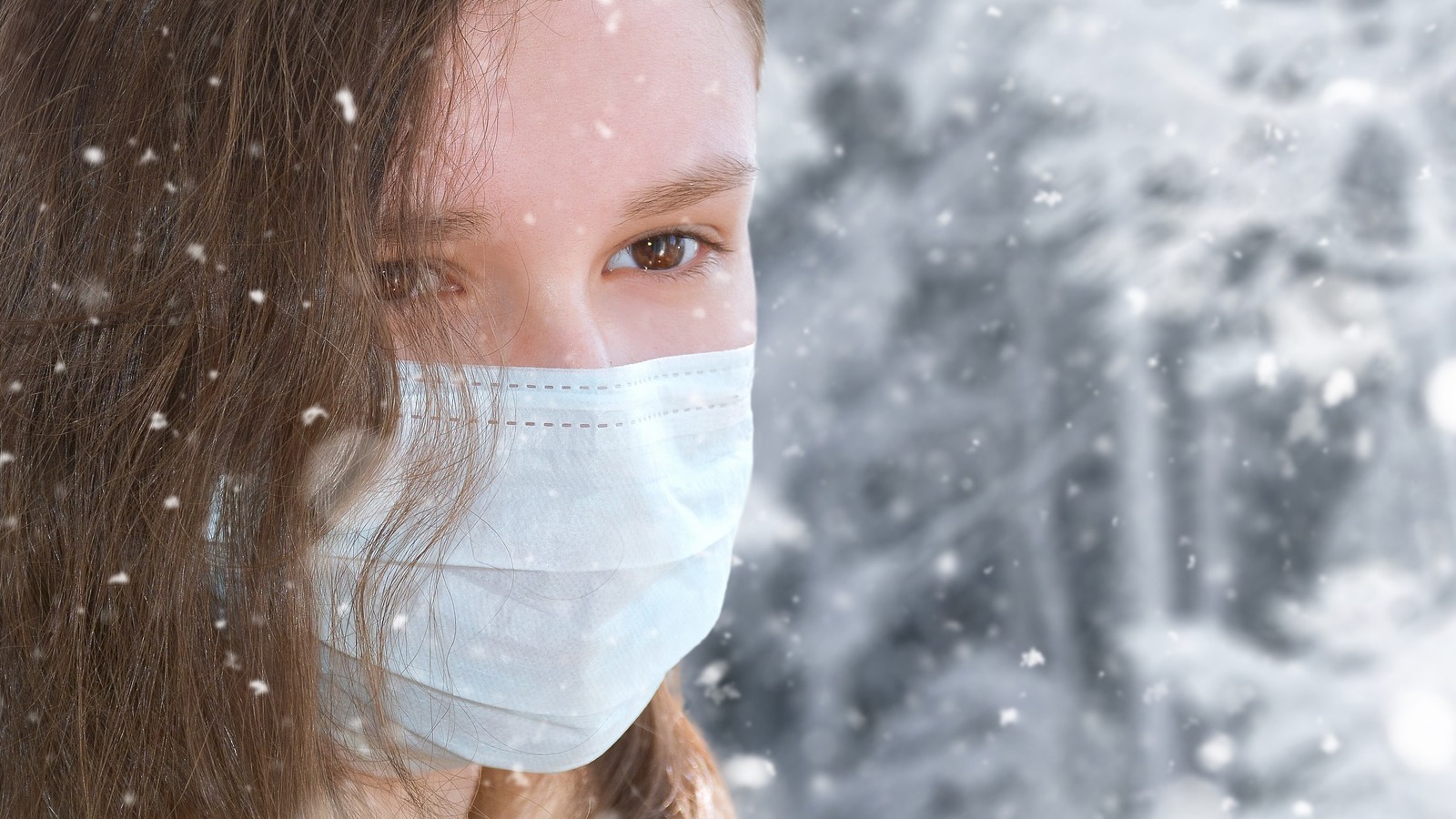
Start Over and Do It Right
An open letter to America’s decision makers, on behalf of economists and financial experts across the country.
An open letter to America’s decision makers, on behalf of economists and financial experts across the country.
Are you an economist, financial expert or businessperson?
Dear decision makers,
As experts on economic theory and practice, we have come together to insist that you reconsider your understanding of the economic reality we face.
Our nation’s economy will remain in crisis as long as the COVID-19 virus spreads unchecked.
The only way to slow the virus sufficiently to allow reopening is to shut down until disease indicators meet public health guidelines. Reopening will only be successful if we then stay within those guidelines; doing that will require massive capacity for testing and contact tracing. And no shutdown can work in the first place if we don’t create conditions that allow people to stay home.
Look at the facts.
More than 180,000 Americans have died from COVID-19 in the last six months, making it the third leading cause of death in the U.S. That’s more deaths than from drug overdose, car crashes, emphysema, stroke, Alzheimer’s disease, diabetes, influenza and pneumonia, kidney disease, or suicide. It’s more than the total number of Americans that have died in all wars we’ve fought since World War II.
In contrast to our frontline defenders, who have pushed themselves beyond all limits to save lives, our national response to this scourge has been feeble. If the U.S.’s COVID response had been as effective as that of South Korea or Australia, we could have avoided more than 90 percent of American COVID deaths. Of the 180,000 deaths, at least 162,000 need not have happened.
By opening the economy and thus encouraging people to meet up at bars, gyms, restaurants, stores and other gatherings, we are prolonging the harm. Those meetings drive up disease, and therefore deaths. The reasonable fear that results from rampant serious illness and sudden death is a potent economic factor that will keep people’s economic lives on hold for a very long time.
As multiple Federal Reserve officials have noted, European nations are now in a stronger position than we are to recover economically because they “shut down more forcefully, maintained restrictions longer, and did not reopen until the virus had reached low levels.” European nations that have better controlled the virus have raised investor confidence in that continent’s markets.
Check the spread of the virus.
First, we need to slow COVID down.
Non-essential businesses should be closed in states not meeting public health benchmarks. Restaurant service should be limited to take-out. People should stay home, going out only to get food and medicine or to exercise and get fresh air. Masks should be mandatory in all situations, indoors and outdoors, where we interact with others.
We need each state leader to keep that protocol in place until we reach the indicators public health professionals recommend. Case numbers in their state must recede to a level at which we have the capacity to do effective testing and contact tracing — less than 1 new case per day per 100,000 of population, and less than 3% of all tests coming back positive for COVID-19.
Then, and only then, we can try a little more opening, one small step at a time, taking time between steps to measure results.
States should set and enforce travel restrictions for anyone arriving from a state that is not currently meeting public health benchmarks. For example, in Massachusetts travelers must go into a 14-day quarantine upon entering the state or produce a negative COVID-19 test result administered no more than 72 hours prior to arrival.
Put the pieces in place for safe reopening.
The federal government must coordinate production and distribution of personal protective equipment, as well as testing capacity, in sufficient quantities to keep all Americans safe. If children are to return to school safely, we need a very large number of tests available, offering near-instant results. This must be a priority.
Help Americans weather the shutdown.
We must make essential workers as safe as possible at work, and those who can’t work as safe as possible at home. For the duration of the shutdown, the government should provide:
- effective protections for essential workers in the supply chains that must remain open;
- income support for those who are unable to work, sufficient to provide essentials;
- a continued strict freeze on evictions, foreclosures and utility stoppages, with a mechanism to work out the arrears once the pandemic is controlled.
Let’s get our priorities straight.
Until we control the spread of the virus, every attempt to reopen our economy will fail.
If you, our leaders, don’t take action to stop all non-essential economic activity and coordinate our response to this threat, the consequences will be measured in lost businesses and livelihoods in communities across the nation, in widespread suffering, and in deaths.
We need you to lead.
Tell the American people the truth about the virus, even when it’s hard. Take bold action to save lives — even when it means shutting down again. Unleash the resources needed to contain the virus and make future shutdowns unnecessary.
Sincerely,
Co-authors:
Evan Preston
New Economy Campaigns Director, U.S.PIRG
James Galbraith, Ph.D.
Lloyd M. Bentsen Jr. Chair in Government/Business Relations and Professor of Government
The University of Texas at Austin
Martin Ravallion, Ph.D.
Edmond D. Villani Professor of Economics
Georgetown University
Co-signers:
Jerry Green, Ph.D.
John Leverett Professor
Harvard University
Donald Davis, Ph.D.
Ragnar Nurkse Professor of Economics
Columbia University
Debraj Ray, Ph.D.
Silver Professor in the Faculty of Arts and Science and Professor of Economics
New York University
Raquel Fernandez, Ph.D.
Silver Professor of Economics
New York University
Gerard Caprio, Ph.D.
Chair of the Executive Committee for the Center for Development Economics
William Brough Professor of Economics
Williams College
Dilip Mookherjee, Ph.D.
Professor of Economics
Boston University
Efe Ok, Ph. D.
Professor of Economics and Mathematics
New York University
Jonathan Morduch, Ph.D.
Professor of Public Policy and Economics, Executive Director NYU Financial Access Initiative
New York University
Amalia Miller, Ph.D.
Professor of Economics, Graduate Studies Director
University of Virginia
Gary Fields, Ph.D.
Professor of Economics and the John P. Windmuller Chair of International and Comparative Labor Economics
Cornell University
Francine D. Blau, Ph.D.
Frances Perkins Professor of ILR and Professor of Economics
Cornell University
Michael Kuehlwein, Ph.D.
Professor of Economics
Pomona College
David Galenson, Ph.D.
Professor of Economics
University of Chicago
James Boyce, Ph.D.
Professor Emeritus
University of Massachusetts Amherst
Jeffrey Nugent, Ph.D.
Professor of Economics and Business
University of Southern California
Mary King, Ph.D.
Professor of Economics Emerita
Portland State University
Mark Long, Ph.D.
Professor of Public and Governance and Adjunct Professor of Economics
University of Washington
Daniel Hammermesh, Ph.D.
Distinguished Scholar
Barnard College and IZA
Robert Hutchens, Ph.D.
Professor of Economics
Cornell University
Wing Thye Woo, Ph.D.
Professor of Economics
University of California, Davis
Tom Vogl, Ph.D.
Associate Professor of Economics
University of California, San Diego
Richard Salvucci, Ph.D.
Professor of Economics
Trinity University
Priyaranjan Jha
Professor of Economics
University of California, Irvine
Linus Yamane, Ph.D.
Professor of Economics
Pitzer College
Leora Friedberg, Ph.D.
Associate Professor of Economics
University of Virginia
Charles Becker, Ph.D.
Research Professor
Duke University
Ariel BenYishay, Ph.D.
Associate Professor of Economics
College of William and Mary
Melvin Ayogu, Ph.D.
Professor of Pedagogy in Economics
Emory University
Samiran Banerjee, Ph.D.
Professor of Pedagogy in Economics
Emory University
Esfandiar Maasoumi, Ph.D.
Distinguished Professor of Economics
Emory University
V. Bhaskar, Ph.D.
Sue Killiam Professor of Economics
University of Texas, Austin
Stephen Turnovsky, Ph.D.
Van Voorhis Professor of Economics
University of Washington
Fabio Ghironi, Ph.D.
Paul F. Glaser Professor of Economics
University of Washington
Stephen C. Smith, Ph.D.
Professor of Economics and International Affairs
George Washington University
Emily Blank, Ph.D.
Associate Professor of Economics
Howard University
Harry Cleaver, Ph.D.
Associate Professor of Economics
University of Texas, Austin
Daniel Marcin, Ph.D.
Adjunct Professor of Economics
George Washington University
Sebnem Kalemli-Ozcan, Ph.D.
Professor of Economics
University of Maryland
Nancy Folbre, Ph.D.
Professor of Economics Emerita
University of Massachusetts, Amherst
Evan Kraft, Ph.D.
Undergraduate Program Director and Economist-in-Residence
American University
Topics
Find Out More


Another winter during COVID-19: How to stay safe and sound

Nursing home safety during COVID: Cases and vaccines


